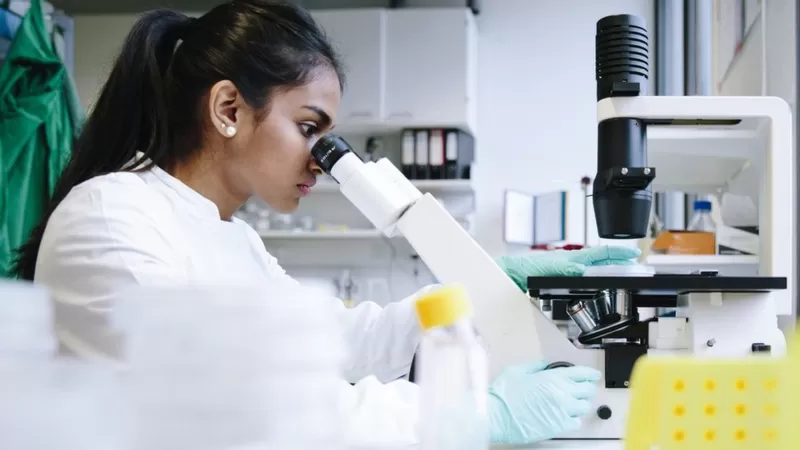The UK is to rejoin the EU’s flagship scientific research scheme, Horizon, the government has announced.
UK-based scientists and institutions will be able to apply for money from the £85bn fund from today.
Associate membership had been agreed as part of the Brexit trade deal when the UK formally left the EU in 2020.
However, the UK has been excluded from the scheme for the past three years because of a disagreement over the Northern Ireland Protocol.
Prime Minister Rishi Sunak said: “With a wealth of expertise and experience to bring to the global stage, we have delivered a deal that enables UK scientists to confidently take part in the world’s largest research collaboration programme.”
“We have worked with our EU partners to make sure that this is the right deal for the UK, unlocking unparalleled research opportunities, and also the right deal for British taxpayers.”
Thursday’s announcement also states that the UK will associate to Copernicus, the EU’s £8bn Earth observation programme. Britain will not, however, be rejoining a nuclear research alliance known as Euratom R&D, although there is an agreement to cooperate specifically on nuclear fusion.
In a press release, the European Commission said the decision would be “beneficial to both” and stated that “overall, it is estimated that the UK will contribute almost €2.6bn (£2.2bn) per year on average for its participation to both Horizon and Copernicus.
The scientific and academic community has welcomed the news of Horizon association.
Chief Executive of Universities UK Vivienne Stern told the BBC there would be a “unanimous sigh of colossal relief” from scientists which would allow them to work across geographical borders by drawing funding from a common pot.
“I was looking at one project which is mapping the human brain – a colossal project involving 500 researchers in 16 countries – it’s been going on for 10 years. The scale [of the projects] is impossible through national funding mechanisms.”
The UK’s association to Horizon was agreed in principle as part of the Brexit Trade and Co-operation Agreement, but the issue then became bogged down in the dispute about the Northern Ireland Protocol.
The European Commission refused to allow membership of the programme until the UK honoured its commitments under withdrawal from the EU.
The Windsor Framework, agreed between Brussels and London to fix their differences over Northern Ireland last February, also had the effect of unlocking Horizon association. The past six months have seen both parties negotiating the arrangements of membership to the science club.
UK scientists were always the big winners in the grant process for past Horizon programmes, jostling for top spot and sometimes outcompeting the other European science superpower – Germany.
The delay and uncertainty in agreeing association has seen a drop in applications from UK scientists to work on European projects that were underwritten by UK government money.
Ministers and science officials will now hope the new deal will re-energise the sector, encouraging researchers to reclaim their leadership role in European science.








